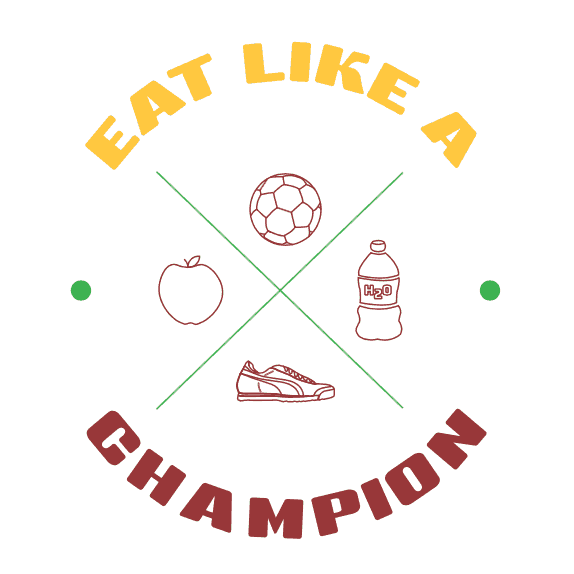Feeding Young Athletes for More Energy
December 19, 2018
How do you feed the young athlete so he can go the distance? Finish the race? Avoid fatigue before the end of the game? I’ve got 5 tips for feeding young athletes so they can be top performers.
Got a young athlete in the house?
I used to.
Four. Of various skills and abilities…and sports. You could say I had multi sport athletes.
A volleyball player, two swimmers and a rower. One swimmer was a club team participant, swimming 2 hours each night, 5-6 nights each week. She went on to swim in college.

My other swimmer was like her older sibling volleyball player: They both stopped playing after high school.
The rower is at the high school level, which means for six days during the week he is practicing for 3 hours.
He is still growing, so I give special consideration to his athlete meal plan, particularly his nutrition needs for growth, and the calorie torch related to his sport.
I learned a lot from feeding my own athletes and want to share my tips with you. For more information on sports nutrition for the youth athlete, be sure to check out my book, Eat Like a Champion: Performance Nutrition for Your Young Athlete.
5 Tips for Feeding the Youth Athlete for Energy & Performance
It’s important to make sure your young athlete is getting good food with an abundance of nutrients, and enough of them.
In other words, meals and snacks containing the nutrients that fuel his performance and energize his developing body.
1. Feed Young Athletes Quality Food
For the athlete diet, you want to choose whole foods in their natural state, such as low fat dairy products, lean meats and other protein sources, vegetables, fruits, whole grains and healthy fats.
These are the foods that should be a part of every child athlete diet.
2. Use an Athlete Meal Plan for Energy
Make sure your child gets three nutritious meals and no skipping!
A meal should include most food groups and at a minimum, at least three to four of the following food groups: a protein source, dairy, fruit, vegetable, healthy fats and/or a whole grain food source.
Offering protein with meals ensures amino acids are available to the young athlete’s body whenever it’s needed for muscle repair, strengthening and building.
Carbs from fruits, vegetables, dairy and whole grains provide your athlete’s exercising muscles with fuel to keep going.

3. Offer Snacks with Protein When Feeding Athletes
You may wonder how much protein a child athlete needs. I’m betting it’s not as much as you think. Most young athletes get plenty of protein without giving it much thought.
Great sources of protein for young athletes include:
- Meats
- beans and bean dips
- nuts and nut butters
- cheeses
- yogurt
- milk or milk substitutes
- protein-rich whole grains such as quinoa
Some examples of a healthy protein-rich snack for your school-age athlete:
- unsweetened cereal and milk
- yogurt, fresh fruit and nuts
- whole-wheat toast and peanut butter
- nut butter and jam sandwich
- baked potato with cottage cheese (or other melted cheese)
Protein in the snack helps your athlete manage his appetite so they don’t get too hungry between meals.
4. Schedule Eating for Peak Energy Levels
Kids perform best in all aspects of life when they eat regularly. Try to provide meals and snacks every 3-4 hours, and avoid sending your athlete to practice on an empty stomach.
Regular meals and snacks lend a predictability to the day and let your child or teen athlete regulate his eating.
The opposite? Getting too hungry and overeating, or not choosing the best food options.
5. Ditch the Worry about Counting Calories
Instead, let your athlete’s appetite lead the way. Take care not to fall into the trap of running through the drive-thru, hitting the convenience mart or snacking on too many processed foods.
If so, your athlete may overshoot the balance of energy in versus energy out.
Feeding Young Athletes Made Easy
With an athlete meal plan, it’s easy to assure your child gets enough nutrition to cover all his needs.
The benefits of making sure your child has enough energy is worth it: a healthy, growing, energized athlete who is ready for performance anywhere — on the court or in the pool.
How do you make sure your athlete is getting enough nutrition?
Need More Resources on Nutrition for Youth Sports?
Check out my online sports nutrition program for the young athlete, also called Eat Like a Champion! This is made FOR the athlete so he or she can take responsibility for eating well, on and off the field.

Get the big picture and read The Young Athlete: Ultimate Guide to Nutrition.






![Game Day Granola [Recipe]](https://thenourishedchild.com/wp-content/uploads/2015/11/Game-Day-Granola-e1447270901887-300x300.jpg)



